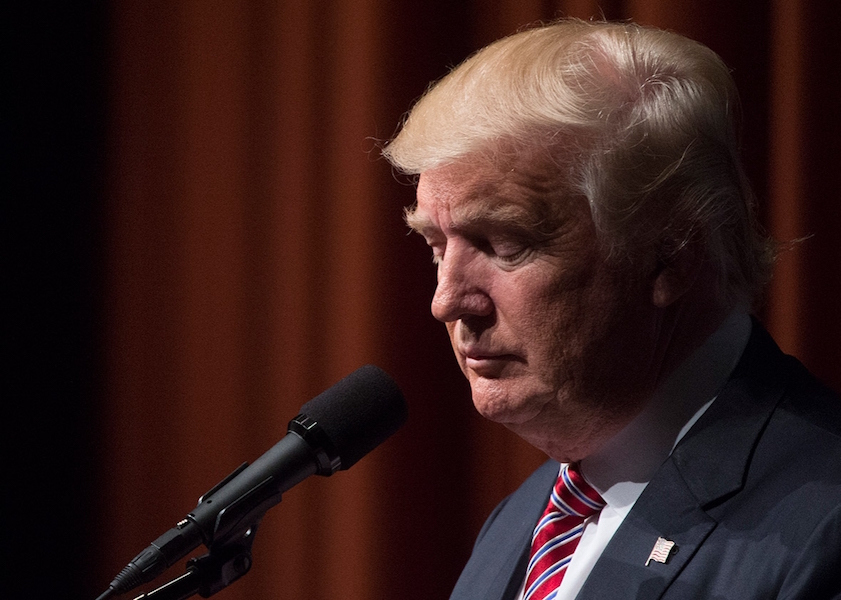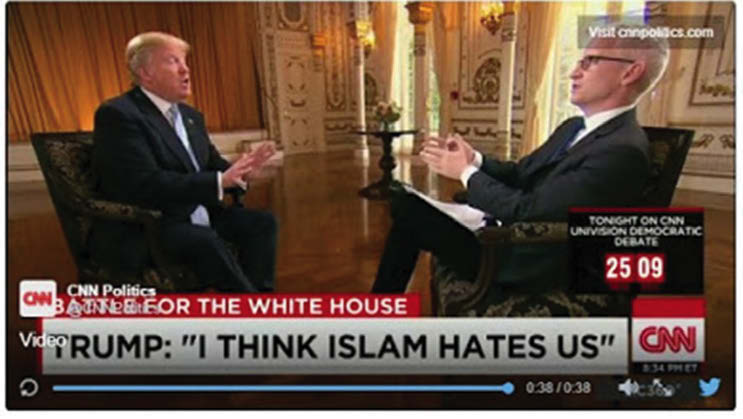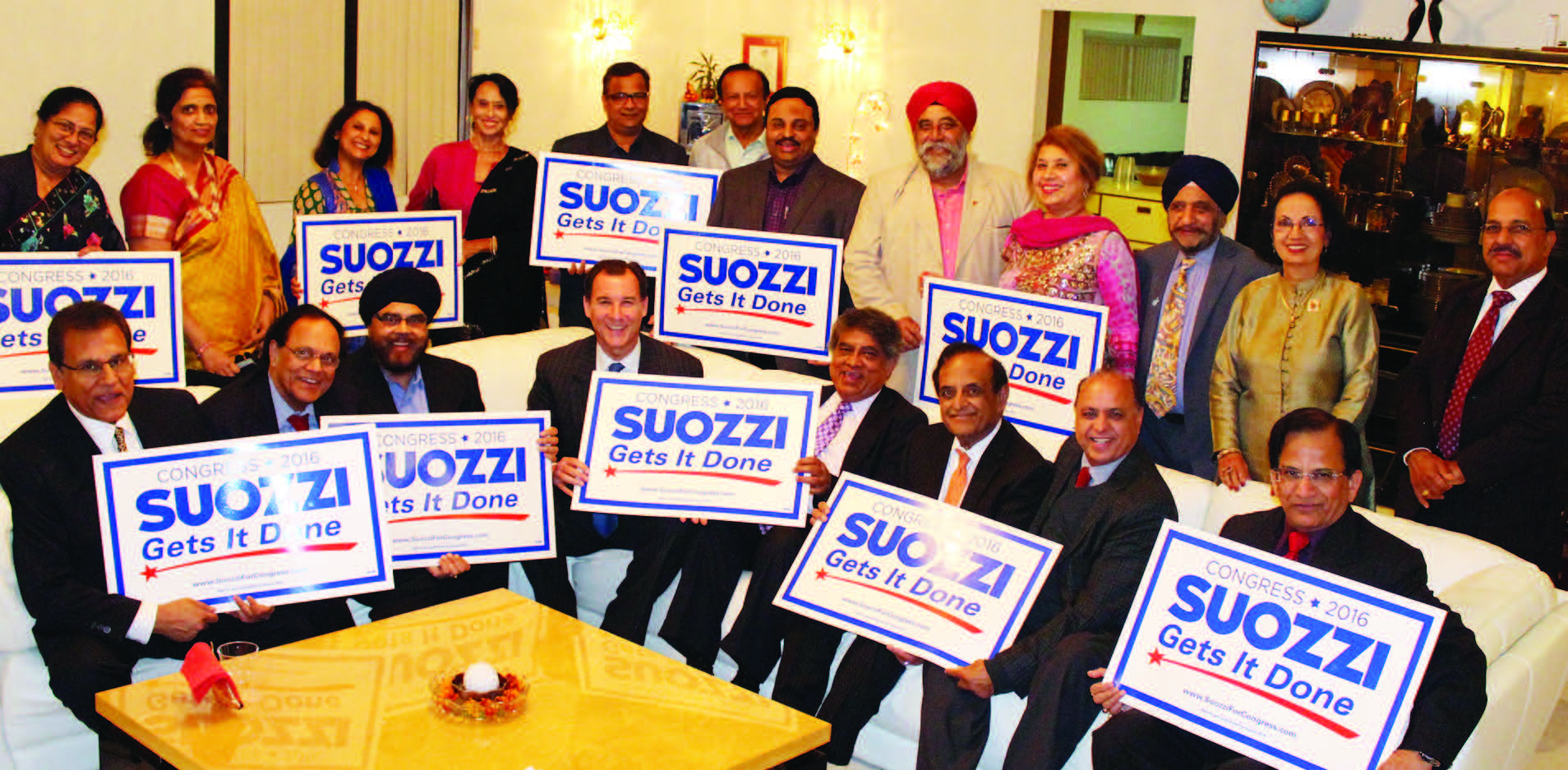
We have a tradition in the United States. When you lose an election, you take the L, and you move on. It’s what John Adams did after he lost to Thomas Jefferson in the 1800 election, marking the first ever peaceful transfer of power after a bitterly contested democratic election. It’s what Samuel Tilden and Al Gore did after their respective elections, in 1876 and 2000, when they won the national popular vote but lost the tally in the Electoral College. And it’s what Richard Nixon did after losing the 1960 election in an incredibly close race with John F. Kennedy, despite evidence of fraud in Illinois and suspicions of it in Texas.

We have a great track record on this count, with one exception in our 228-year history of presidential elections. (It didn’t work out.) And we owe that track record to a set of shared norms about our political institutions. In the modern era, those norms are straightforward. We all agree in the principle of one person, one vote. We all agree that, in each state’s Electoral College, electors go to the winner of the popular vote. And for the most part, we all agree that the major parties are legitimate groupings of citizens and interests, with a legitimate claim on power should their candidates win an election.
That hedge— “for the most part”—is intentional. For the most part, we do agree that the winners are legitimate. For as much as Republicans worked to stymie Barack Obama’s presidency through unprecedented obstruction, they never sought to delegitimize the election results or argue that his wins didn’t count. At the same time, Republican lawmakers throughout the country—and especially in the South—have engaged in a project of voter suppression, animated by the barely veiled idea that some voters are more legitimate than others. They cry “fraud”—ignoring all evidence to the contrary—and suggest stolen elections. It’s corrosive and dangerous, not the least because these voter laws target black and Latino citizens in a clear echo of Jim Crow.
“Fraud” is part of the backdrop of Republican politics on the state and local level, but conspiracy theorists aside, it hasn’t bubbled up into national politics. Republican leaders opposed Obama (and Bill Clinton before him) and even challenged his authority as president. But they didn’t attack the election itself, or suggest the results were illegitimate. Enter Donald Trump.
Trump has no use for norms. He violates them at will, from relatively trivial transgressions such as his personal attacks on other presidential candidates (“Little Marco,” “low-energy” Jeb), to the worrying ones such as his habit of spreading conspiracy theories (e.g., the charge that Ted Cruz’s father helped assassinate John F. Kennedy), to the serious ones such as his calls for religious tests, his tolerance of white supremacists, and his exploitation (and occasional use) of explicit racism.
Trump’s contempt for norms has only gotten worse in the past few days, as he reacts to the Democratic National Convention—and his subsequent collapse in the polls—with rage and anger. And on Monday, he crossed one of the brightest lines in American politics, the one that deals directly with our tradition of peaceful transfer of power.
“I’m afraid the election is going to be rigged, I have to be honest,” he said to a crowd in Columbus, Ohio. He followed up on this in an interview with Fox News’ Sean Hannity. “I’m telling you, November 8th, we’d better be careful because that election is going to be rigged. And I hope the Republicans are watching closely, or it’s going to be taken away from us.”
The simple truth of American politics—and of democratic life at large—is that our institutions are only as strong as the norms around them.
This was in line with comments from Roger Stone, a longtime adviser to Trump. In a recent interview with Breitbart’s Milo Yiannopoulos, Stone said that Trump should start talking “constantly” about the chance of voter fraud and a rigged election. “He needs to say for example, today would be a perfect example: ‘I am leading in Florida. The polls all show it. If I lose Florida, we will know that there’s voter fraud.’” Stone continued in this vein. “‘If there’s voter fraud, this election will be illegitimate, the election of the winner will be illegitimate, we will have a constitutional crisis, widespread civil disobedience, and the government will no longer be the government.’”
From here, Stone’s language gets ominous. “If you can’t have an honest election, nothing else counts,” he said. “The government will be shut down if they attempt to steal this and swear Hillary in. No, we will not stand for it. We will not stand for it,” Stone said, promising a “bloodbath” of “civil disobedience.”
You could say that there’s nothing new here, that earlier Republicans have brought similar rhetoric to the table, and thus that this—if there’s a difference at all—is one of degree and not of kind. In the aftermath of 1960, allies of Nixon alleged fraud. And again, in the wake of Obama’s 2012 victory, Alex Jones and other conspiratorial figures obsessed over the idea that the election was stolen. But this elides fine details. For instance, neither Nixon’s allies nor Alex Jones was a candidate for the presidency of the United States. This world we’re in, in which a major party campaign maligns the election as rigged well before the fact and promises a proverbial “bloodbath” in the event of defeat, is a new one.
It’s possible that this is just impulsive nonsense from unscrupulous men with no bearing on the election. But I wouldn’t dismiss it. Presidential nominees matter. What they say matters. Trump is a major party leader in an age of rigid partisanship. Not only has this bound reluctant lawmaker to his campaign, but it’s given him a definite floor for votes in the general election. If he loses, it won’t be a landslide. It might even be close. Which makes this language dangerous.
A Donald Trump who accuses the Democratic campaign of fraud—who says Hillary stole the election from him—is one who has allies and enablers within his party. It’s one who has an audience with millions of voters, primed to believe in an epidemic of fraud and stolen elections, where “fraud” often means black and Latino voting.
What happens if Trump loses the election, and he claims fraud? What happens when hundreds of thousands of his most loyal followers—fed on a diet of anger and rage—convince themselves that the race was stolen from their tribune? The simple truth of American politics—and of democratic life at large—is that our institutions are only as strong as the norms around them. Those norms are the superstructure of democracy; they help us navigate conflict and mediate change. When they’re violated, either by unaccountable elites or by reckless politicians, we suffer. And right now, one of those elites is undermining them for the sake of his own ego, stoking fear and distrust just so he can lose the election without losing face.




